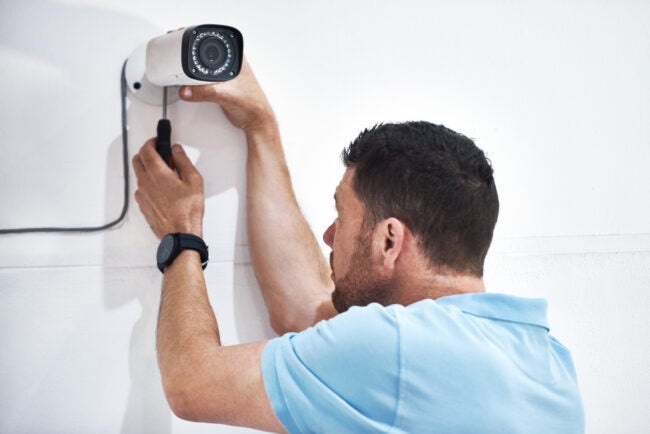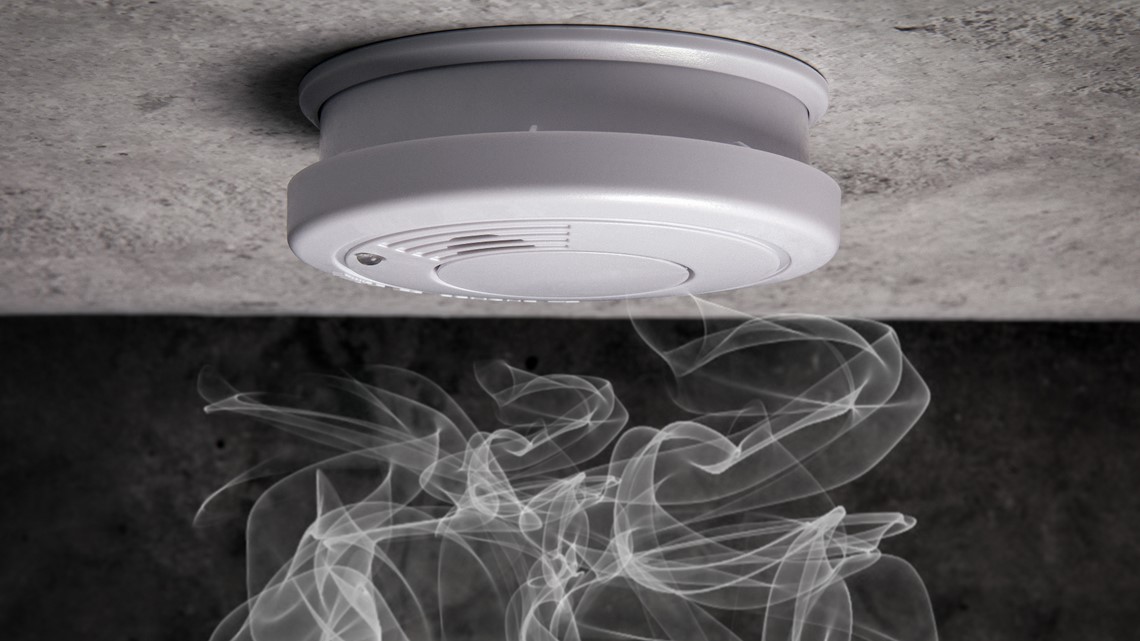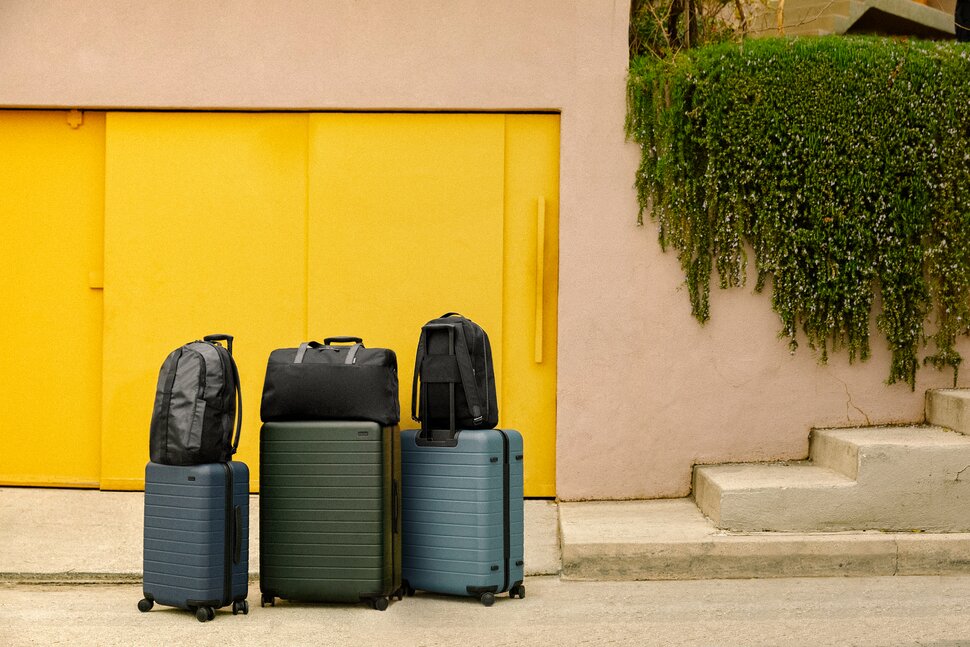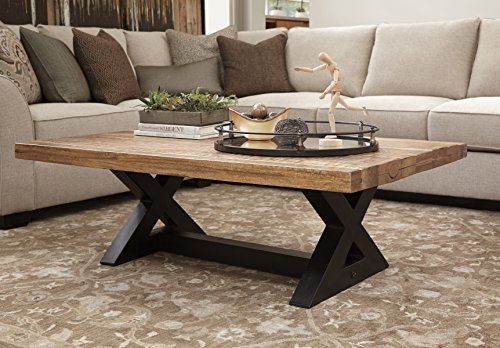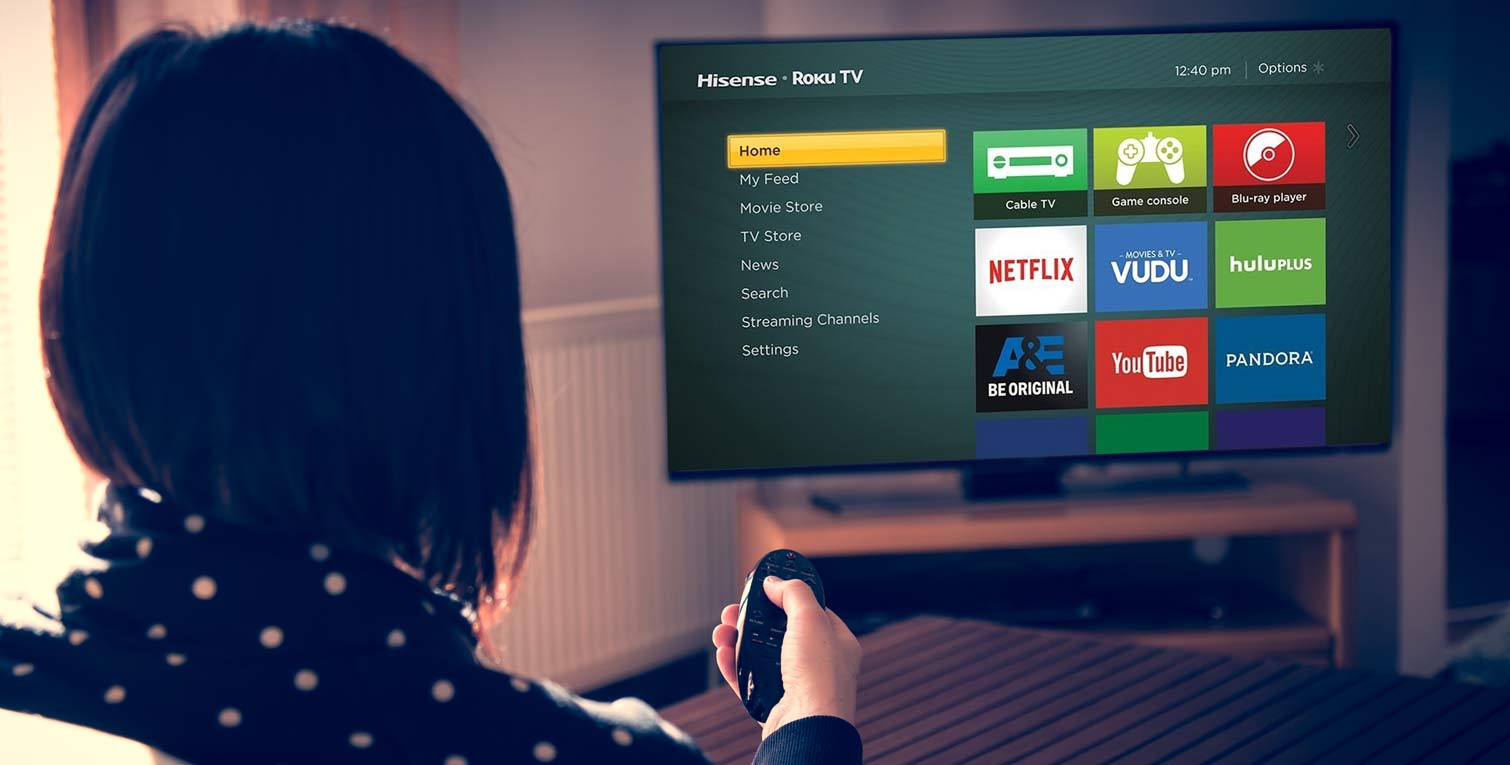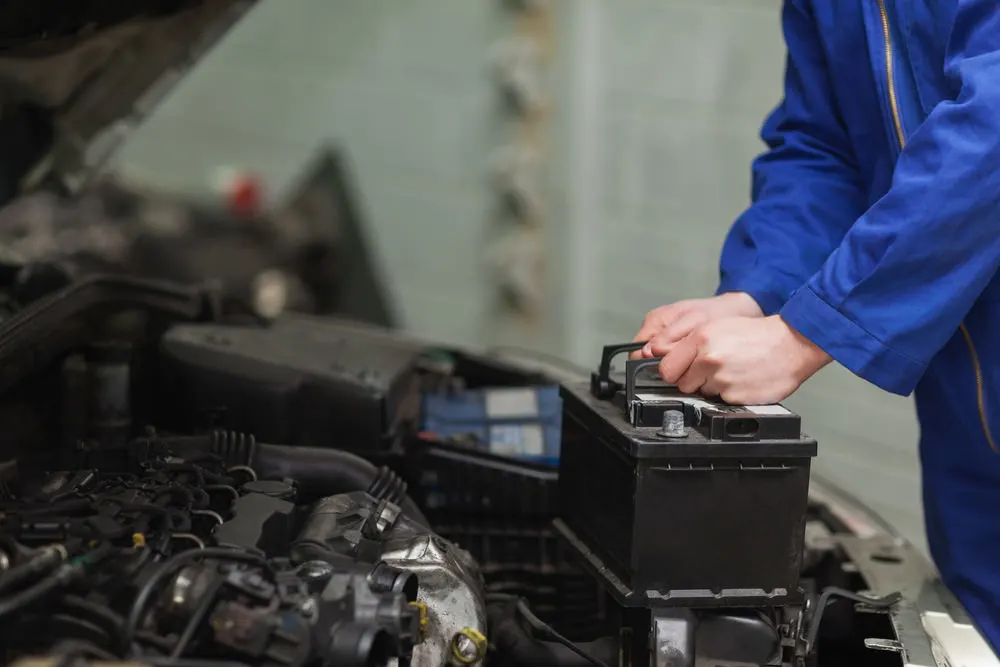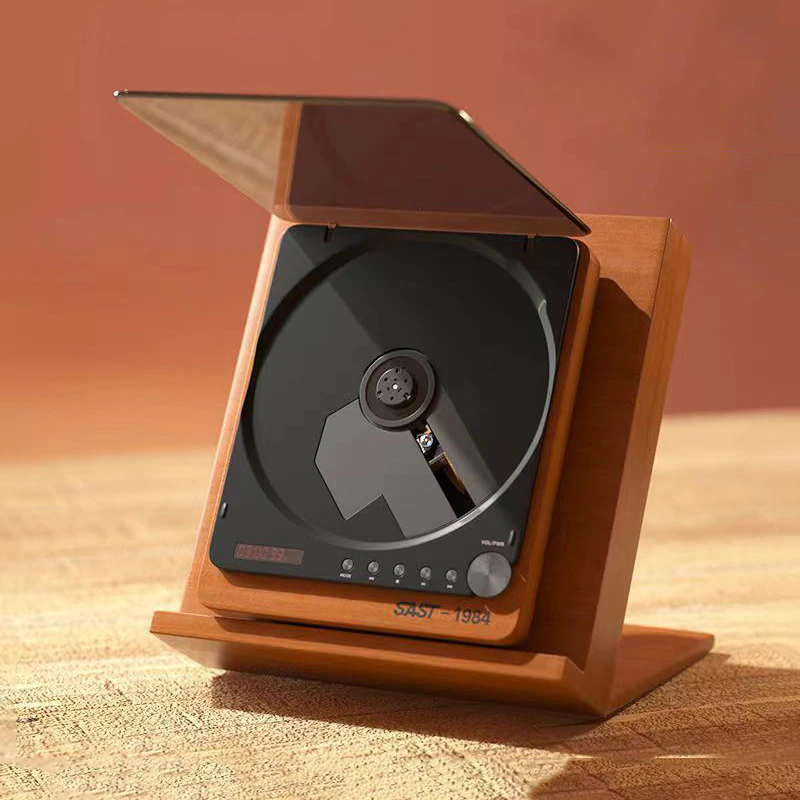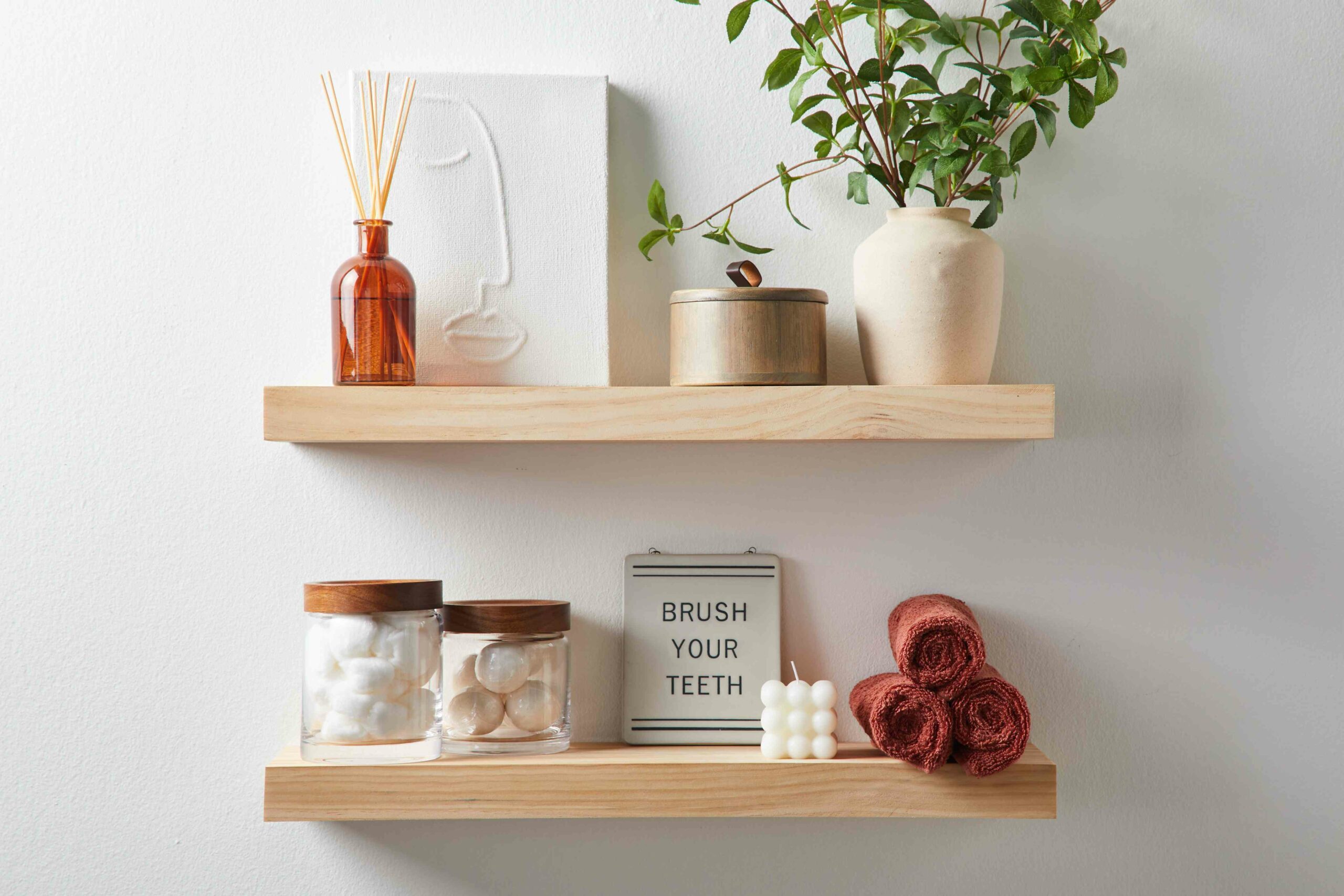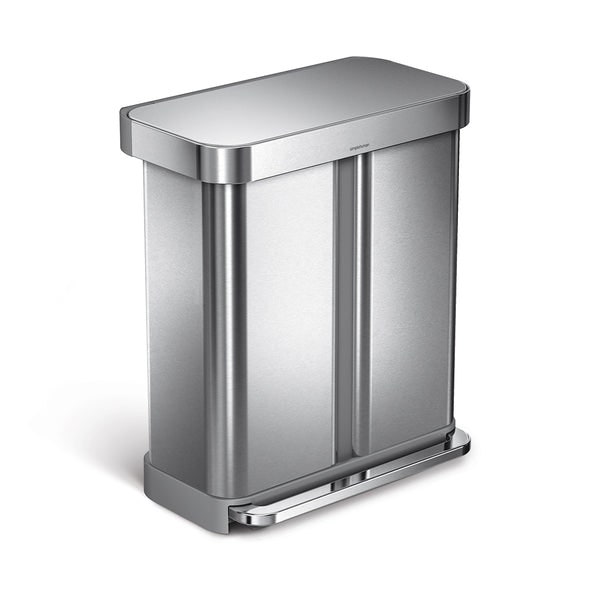1. Introduction
Have you ever wondered how you can enhance the safety and security of your home? One highly effective solution is to invest in a security camera system. Security cameras not only serve as a deterrent to potential intruders but also provide valuable evidence in case of any untoward incidents. However, with the myriad of options available in the market, choosing the right security camera for your home can be a daunting task. Where do you even begin? Don’t worry, we’ve got you covered! In this article, we will guide you through the process of selecting the perfect security camera that meets your specific needs, ensuring your home is protected day and night.
[amazon bestseller=”Security Cameras” items=”10″]
2. Understanding Security Cameras
2.1 Definition
Before diving into the selection process, let’s establish a clear understanding of what security cameras actually are. In simple terms, a security camera is a device that captures and records video footage of activities in and around your home. These cameras, also known as surveillance cameras or CCTV cameras, can be installed both indoors and outdoors to monitor and capture any potential threats or suspicious activities.
2.2 Background
The concept of security cameras dates back several decades, but technological advancements have revolutionized their functionality and accessibility. Initially, security cameras were limited to commercial establishments due to their high cost and complexity. However, with the advent of digital technology, security cameras became more affordable and user-friendly, making them widely accessible for residential use as well.
Modern security cameras offer a multitude of features, including high-definition video recording, night vision capabilities, motion detection, and remote access through mobile devices. With the increasing demand for home security solutions, various types of security cameras have emerged, each catering to specific requirements and preferences.
3. Key Concepts and Significance
3.1 Historical Significance
Throughout history, humans have always sought ways to protect their homes and loved ones. From ancient civilizations using guards and sentries to the modern-day security systems we have today, the need for security has remained constant. In the past, security measures heavily relied on physical barriers and human presence, which could be easily bypassed or overwhelmed. However, the introduction of security cameras brought about a significant shift in how we approach home security. These cameras provide a powerful tool not only for deterring criminals but also for gathering evidence and maintaining a record of events, ultimately enhancing the overall security of our homes.
3.2 Societal Importance
In a society where security concerns are on the rise, security cameras play a vital role in maintaining public safety. CCTV cameras installed in public spaces and neighborhoods act as an extra set of eyes, helping law enforcement agencies and community members identify and prevent criminal activities. The presence of visible security cameras can also deter potential wrongdoers, decreasing the likelihood of theft, vandalism, or other malicious acts. By extending the reach of surveillance beyond individual homes, security cameras contribute to the collective security of communities, fostering a sense of safety and well-being for everyone.
In the next sections of this article, we will delve into the essential factors you should consider when choosing a security camera, such as resolution, lens type, and connectivity options. So, let’s get started on finding the perfect security camera that meets your unique requirements!
4. Practical Applications
Now that we have a basic understanding of security cameras, let’s explore some practical applications for using them in your home.
4.1 Indoor Monitoring
Indoor security cameras can be strategically placed to monitor various areas of your home, such as entryways, living rooms, or nurseries. Set up these cameras to keep an eye on your kids when they are playing in their rooms or to ensure the safety of elderly family members who may require extra attention.
4.2 Outdoor Surveillance
Outdoor security cameras are ideal for keeping your home’s exterior safe. Install them near entrances, garages, or driveways to deter potential intruders and capture any suspicious activity. With weather-resistant features, these cameras can brave the elements and provide continuous surveillance, rain or shine.
4.3 Motion Detection
Many security cameras come equipped with motion detection capabilities. This feature allows the camera to automatically start recording when it detects movement within its field of view. It can be especially useful for alerting you to potential threats and ensuring you never miss a moment when someone enters or exits your property.
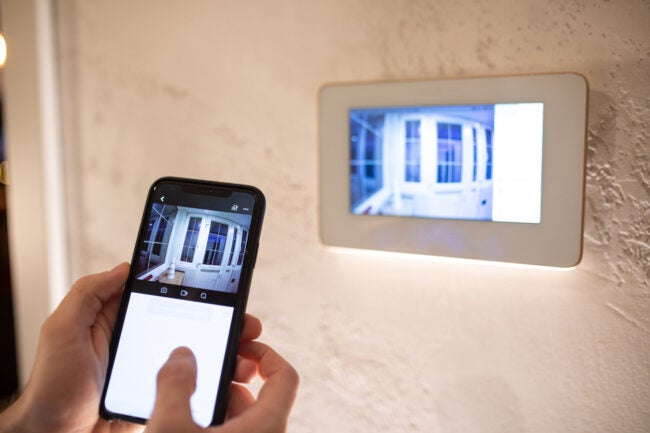
4.4 Baby and Pet Monitoring
Security cameras with audio capabilities are perfect for keeping an eye on your little ones or furry friends. Install a camera in your nursery or pet area to remotely check in when you’re not around. You can even communicate with them through the camera’s built-in two-way audio feature, providing reassurance and comfort.
5. Benefits
Now that we know about the practical applications, let’s explore the benefits of having a security camera system in your home.
5.1 Crime Deterrence
One of the most significant benefits of security cameras is their deterrent effect on criminals. The mere presence of cameras can make potential intruders think twice before attempting any unlawful activities. By installing visible cameras, you’re sending a clear message that your home is protected, effectively reducing the likelihood of a break-in.
5.2 Remote Monitoring and Notifications
With advancements in technology, most security cameras now offer remote monitoring capabilities. By connecting your cameras to a smartphone app or web portal, you can access live feeds and recorded footage anytime, anywhere. Additionally, you can receive instant notifications on your phone when the camera detects suspicious activities, allowing you to take immediate action or alert the authorities.
5.3 Evidence Collection
In the unfortunate event of a burglary or other criminal activity, security cameras provide valuable evidence that can assist the police in identifying and apprehending the culprits. High-quality video footage captured by cameras can serve as crucial evidence in court, increasing the chances of catching and convicting the perpetrators.
5.4 Peace of Mind
Perhaps the most important benefit of having a security camera system is the peace of mind it brings. Knowing that your home is under constant surveillance can alleviate anxiety and let you relax, whether you’re at home or away. Whether it’s monitoring your children, keeping an eye on your pets, or ensuring the safety of your property, security cameras provide a sense of security that is truly priceless.
6. Potential Challenges and Considerations
While security cameras offer numerous benefits, it’s essential to consider potential challenges and important factors before choosing the right system for your home.
6.1 Privacy Concerns
It’s crucial to strike a balance between security and privacy when installing security cameras. Ensure that you follow applicable laws and regulations regarding privacy and the use of surveillance equipment. Be mindful of camera placement, avoiding areas where privacy is expected, such as bedrooms and bathrooms.
6.2 Installation and Maintenance
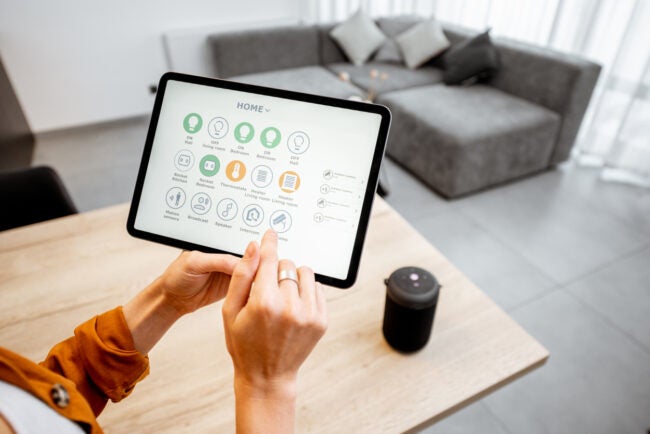
Installing and maintaining security cameras can require some technical knowledge, depending on the system you choose. Consider whether you’re comfortable with the installation process or if you’ll require professional assistance. Additionally, regular maintenance, including software updates and checking for proper functioning, is crucial to ensure your cameras are always ready to capture any potential threats.
6.3 Cost and Budget
While security cameras are an investment in the safety of your home, it’s essential to consider your budget and find a system that fits your financial constraints. Decide how many cameras you need and balance cost with the features and quality you desire. Remember, cutting corners may compromise the effectiveness of your surveillance system.
6.4 System Compatibility
If you already have a home security system in place, ensure that the security cameras you choose are compatible with your existing setup. Compatibility issues can lead to operational problems and limit your ability to integrate and control your security system effectively.
By considering these potential challenges and making informed decisions, you can choose the right security camera system that meets your unique needs and provides the best protection for your home.
7. Expanding Your Options: Alternative Security Camera Types
7.1 Wireless Security Cameras
Are you tired of dealing with messy cables and complicated installations? Then, wireless security cameras might be the perfect fit for your home. These cameras utilize Wi-Fi to transmit the footage directly to your smartphone or computer, eliminating the need for physical connections. With their sleek design and flexibility in placement, wireless cameras are becoming increasingly popular among homeowners.
7.2 Battery-Powered Security Cameras
Imagine a security camera that doesn’t rely on electrical wiring or constant battery replacements. Battery-powered security cameras offer the freedom to install them wherever you desire, establishing surveillance even in remote areas of your property. These cameras are perfect for those seeking hassle-free installation and smooth operation without compromising on video quality.
7.3 Smart Security Cameras
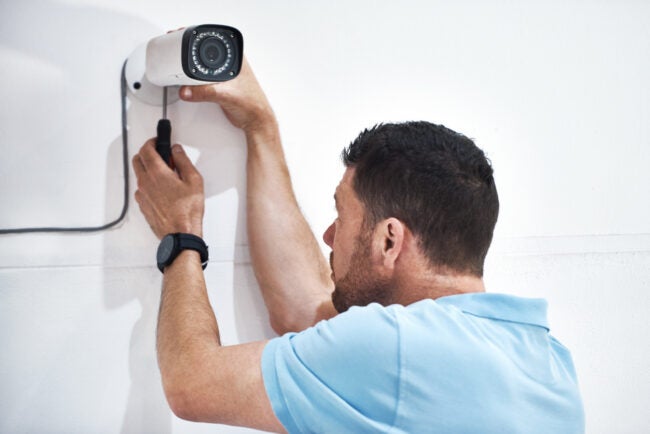
Are you looking for a security camera that integrates seamlessly with your smart home devices? Smart security cameras are worth considering. By connecting to your home’s Wi-Fi network, these cameras allow you to control and monitor them using your voice or smartphone. You can even set up automated triggers, such as turning on lights when motion is detected, adding an extra layer of security to your home.
8. Comparing Security Cameras: What to Look For
8.1 Video Resolution
Picture quality matters. When choosing a security camera, prioritize those with high video resolution. Opt for cameras that offer at least 1080p resolution for clear and detailed footage. Remember, a blurry or pixelated video might hinder your ability to identify potential threats or review incidents effectively.
8.2 Field of View
Consider how wide of an area you want your camera to cover. A larger field of view ensures you capture more action, minimizing blind spots. Cameras with a wide-angle lens or pan-tilt-zoom functionality offer the flexibility to monitor larger areas or follow moving objects with ease.
8.3 Night Vision
Darkness won’t be an obstacle when you have a security camera equipped with night vision. Look for cameras with infrared (IR) LEDs that provide clear visibility even in complete darkness. Whether it’s a suspicious figure or nocturnal wildlife, you’ll have peace of mind knowing your camera can capture footage when you need it the most.
8.4 Storage Options
Recording and storing footage is vital, so consider which type of storage suits your needs. Some cameras offer local storage through SD cards or USB drives, while others provide cloud storage options. Each has its pros and cons, such as limited storage capacity or potential subscription fees, so choose wisely based on your preferences and budget.
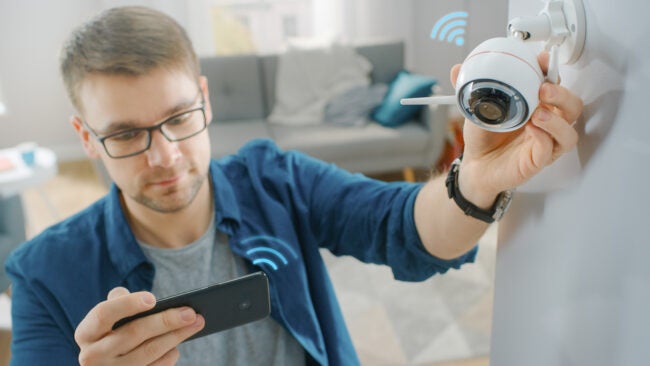
9. The Ideal Security Camera: A Guardian at Your Home
Having a reliable security camera is like having an ever-vigilant guardian safeguarding your home. With advanced technology at your fingertips, you can ensure the safety and well-being of your loved ones and property, even when you’re miles away. The peace of mind that comes from knowing you have eyes on your home’s vulnerable spots is truly priceless.
Remember, a security camera is an investment in your home’s security. Take the time to assess your specific needs and research different camera types and features. Install a camera that aligns with your requirements, providing the right balance between functionality, convenience, and affordability. Whether you choose a wireless camera for its easy setup or a battery-powered camera for its versatility, it’s critical to make an informed decision.
So, why wait? Take action today and make your home a safer place for everyone. With a well-chosen security camera, you’ll gain surveillance superpowers to protect what matters most.
Frequently Asked Questions
1. What are the key factors to consider before choosing a security camera for my home?
When choosing a security camera for your home, you should consider factors such as the camera’s resolution, night vision capability, field of view, storage options, and whether it offers remote access and mobile alerts.
2. Are wired or wireless security cameras better for home use?
Both wired and wireless security cameras have their pros and cons. Wired cameras offer a more reliable connection and continuous power supply but require professional installation. Wireless cameras provide flexibility and easy installation but may be susceptible to interference and require regular battery changes.
3. How important is the resolution of a security camera?
The resolution of a security camera plays a crucial role in capturing clear and detailed footage. For home use, a minimum resolution of 1080p (Full HD) is recommended to ensure you can identify faces, license plates, or other important details.
4. Can security cameras work in low-light conditions?
Yes, many security cameras are equipped with night vision capability, allowing them to capture footage in low-light or complete darkness. Look for cameras with infrared LEDs or low lux rating for better night vision performance.
5. How much storage space do I need for my security camera footage?
The required storage space for your camera footage depends on factors like the camera’s resolution, frames per second, and the number of cameras. As an approximate guideline, a 1080p camera recording at 30 frames per second can generate around 10GB of footage per day. Consider using cloud storage or investing in a surveillance-grade hard drive to store your recordings.

